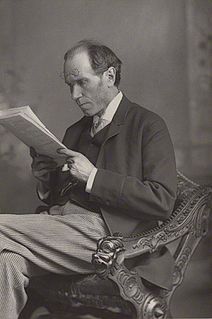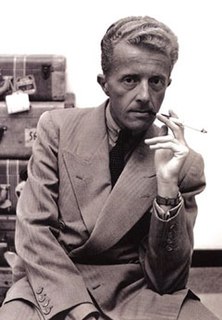A Quote by Henry James
The face of nature and civilization in this our country is to a certain point a very sufficient literary field. But it will yield its secrets only to a really grasping imagination. To write well and worthily of American things one need even more than elsewhere to be a master.
Related Quotes
If you look at the works psychologists have done about individual reports of wellbeing, what happens is that if you're poor, you are not happy. But once you achieve a certain level of material satisfaction then income has very little correlation with people's reported states of happiness, things like climate matter more, things like the culture of the country in which you're raised matter more and so the things really, let's face it, like individual temperament matter more than these things.
I write about, more or less, everything I can think of, that is I stretch my imagination as far as it'll go. I am kind of stuck in the middle as far as my life goes, and hence my imagination tends to zero in on things which are indeed in the middle. That is, I don't write about the very rich, who I scarcely know, or the very poor who I don't know very well either.
There's a lot of research that suggests that organic yields are close or superior to conventional yields depending on factors like climate. In a drought year an organic field of corn will yield more - considerably more - than a conventional field; organic fields hold moisture better so they don't need as much water. It simply isn't true that organic yields are lower than conventional yields.
Because we don't know when we will die, we get to think of life as an inexhaustible well. Yet everything happens only a certain number of times, and a very small number really. How many more times will you remember a certain afternoon of your childhood, an afternoon that is so deeply a part of your being that you can't even conceive of your life without it? Perhaps four or five times more, perhaps not even that. How many more times will you watch the full moon rise? Perhaps 20. And yet it all seems limitless.
I am religious by nature, I'm not a nihilist. I don't follow, I don't even know what the tenets of things like deconstructionism are, and all those schools that come up and their way of looking at things that people strive to incorporate into what they write. I don't even know what they are. Because I sense from a distance that I don't want to know. And therefore even if I had no politics, actual politics, my cultural point of view is hopelessly out of date with the modern literary sensibility. Which is nihilistic, and ironic, detached, cool, and cowardly.
It may well happen that what is in itself the more certain on account of the weakness of our intelligence, which is dazzled by the clearest objects of nature; as the owl is dazzled by the light of the sun. Hence the fact that some happen to doubt about articles of faith is not due to the uncertain nature of the truths, but to the weakness of human intelligence; yet the slenderest knowledge that may be obtained of the highest things is more desirable than the most certain knowledge obtained of lesser things.
I take pens and I write on the inside of my arm. When I'm with people and somebody says a really fascinating anecdote, or fact, or phrase, I'll write it on the inside of my arm. At the end of the day, I'll take the very best things that are on my arm and I'll copy them into a notebook that I always carry and only when the weather is absolutely terrible will I really key the very best of that notebook into the computer. At that point, it's all sort of censored twice - only the best things go from the arm to the book and only the best things go from the book to the computer.
A man in love ... is the master, so it seems, but only if his lady friend permits it! The need to interchange the roles of slave and master for the sake of the relationship is never more clearly demonstrated than in the course of an affair. Never is the complicity between victim and executioner more essential. Even chained, down on her knees, begging for mercy, it is the woman, finally, who is in command ... the all powerful slave, dragging herself along the ground at her master's heels, is now really the god. The man is only her priest, living in fear and trembling of her displeasure.






































